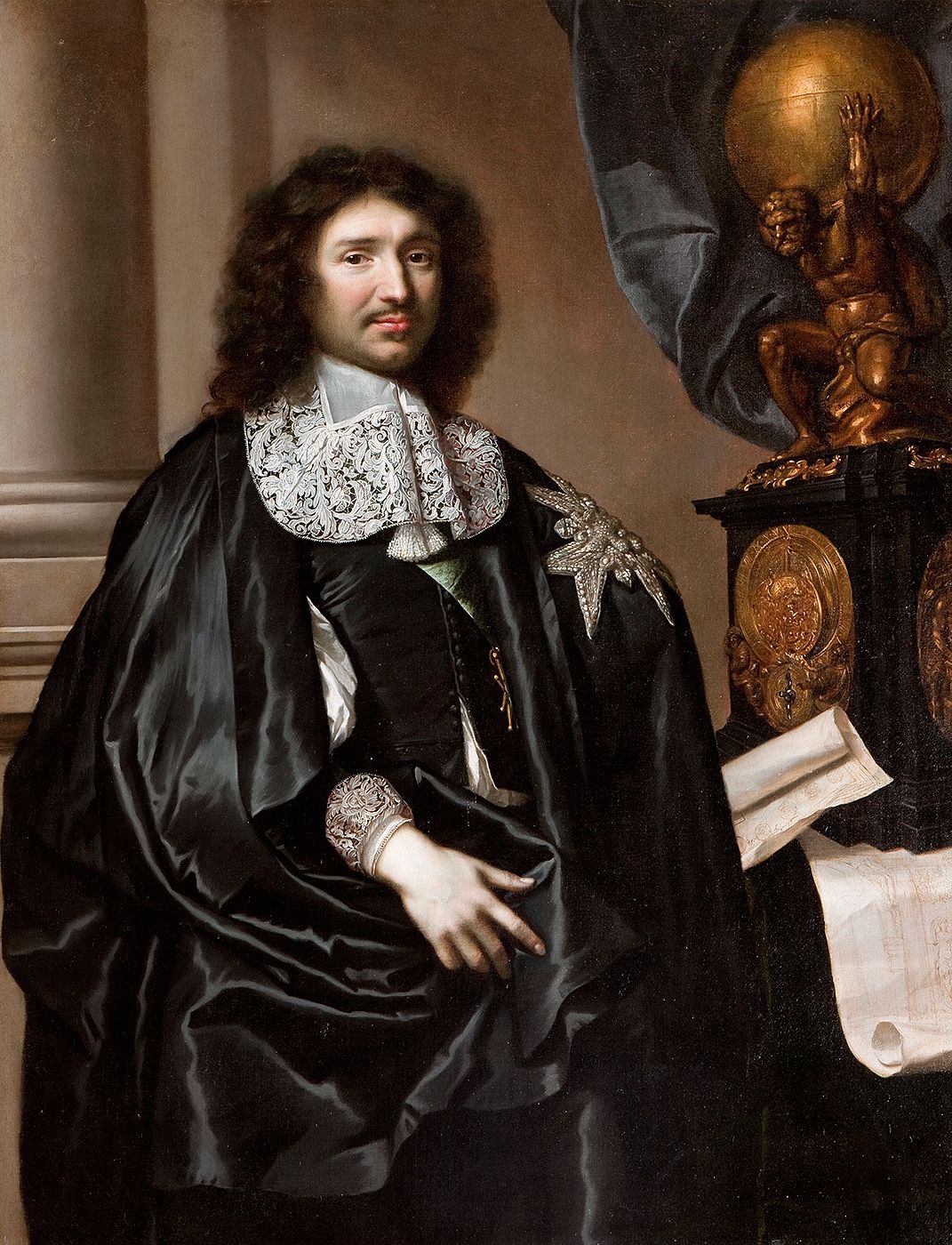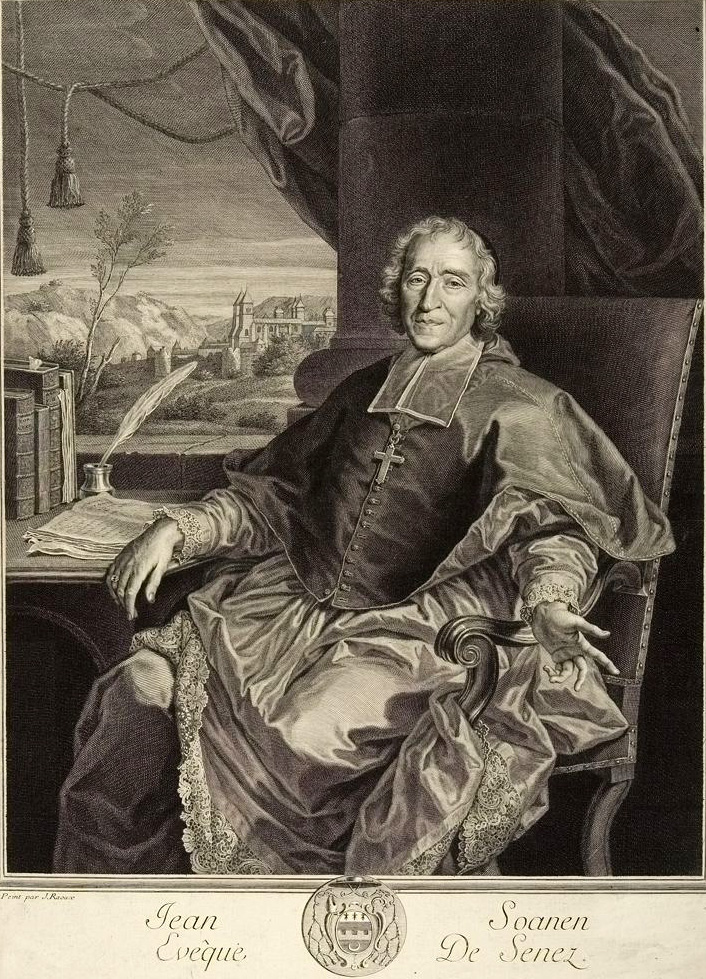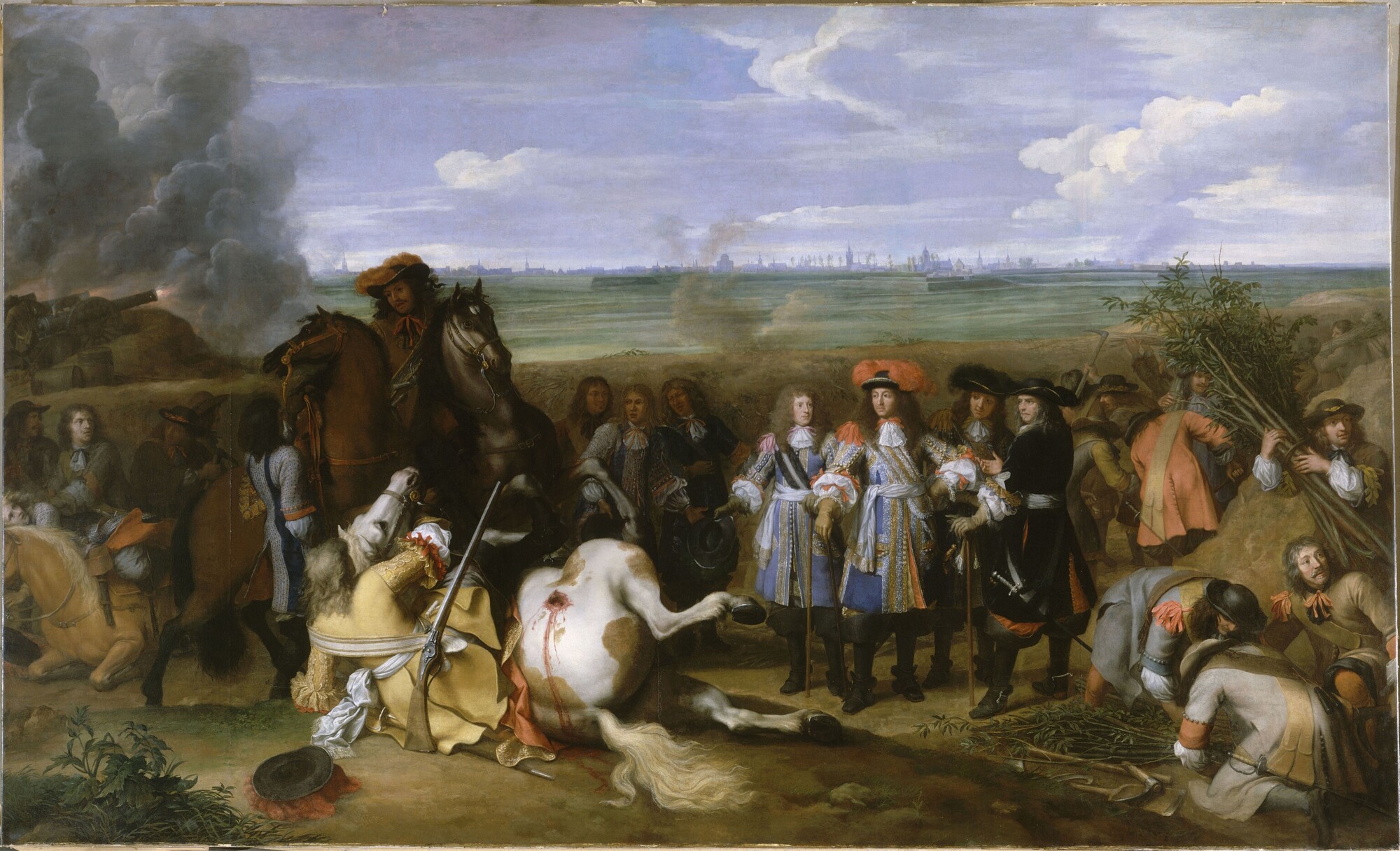|
Charles-Joachim Colbert
Charles-Joachim Colbert de Croissy (11 June 1667 – 8 April 1738) was a bishop of Montpellier from 1697. He was a son of Charles Colbert, marquis de Croissy and a nephew of Jean-Baptiste Colbert. As an ardent Jansenist he had père François-Aimé Pouget edit the noted ''Catéchisme de Montpellier''. His writings were condemned by Rome. He was also part of the 'Appelant' movement alongside Jean Soanen, Pierre de La Broue and Pierre de Langle, calling for a church council to discuss the papal bull ''Unigenitus ''Unigenitus'' (named for its Latin opening words ''Unigenitus dei filius'', or "Only-begotten son of God") is an apostolic constitution in the form of a papal bull promulgated by Pope Clement XI in 1713. It opened the final phase of the Jansen ...''. Sources 1667 births 1738 deaths Bishops of Montpellier {{Montpellier-stub ... [...More Info...] [...Related Items...] OR: [Wikipedia] [Google] [Baidu] |
Bishop Of Montpellier
The Roman Catholic Metropolitan Archdiocese of Montpellier (–Lodève–Béziers–Agde–Saint-Pons-de-Thomières) (Latin: ''Archidioecesis Metropolitae Montis Pessulani (–Lotevensis–Biterrensis–Agathensis–Sancti Pontii Thomeriarum)''; French: ''Archidiocèse Metropolitain de Montpellier (–Lodève–Béziers–Agde–Saint-Pons-de-Thomières)'') is an archdiocese of the Latin Rite of the Roman Catholic Church in south-western France. It was probably created in the 3rd century AD. The current metropolitan archbishop is Pierre-Marie Carré; the immediate past Archbishop Emeritus is Guy Marie Alexandre Thomazeau. On September 16, 2002, as part of the reshuffling of the map of the French ecclesiastical provinces, the diocese of Montpellier (Lodève, Béziers, Agde, and Saint-Pons-de-Thomières) ceased to be a suffragan of Avignon and was elevated to archdiocese and metropolitan of a new ecclesiastical province, with the dioceses of Carcassonne, Mende, Nimes (Uzès a ... [...More Info...] [...Related Items...] OR: [Wikipedia] [Google] [Baidu] |
Charles Colbert, Marquis De Croissy
Charles Colbert, marquis de Croissy (1625 – July 28, 1696) was a French statesman and diplomat. Biography Colbert was born in Reims. Like his elder brother Jean-Baptiste Colbert, he began his career in the office of the minister of war Le Tellier. In 1656 he bought a counsellorship at the parlement of Metz, and in 1658 was appointed intendant of Alsace and president of the newly created sovereign council of Alsace. In this position he had to re-organise the territory recently annexed to France. The steady support of his brother at court gained for him several diplomatic missions to Germany and Italy (1659–1661). In 1662 he became marquis de Croissy and '' président à mortier'' of the parlement of Metz. After various intendancies, at Soissons (1665), at Amiens (1666), and at Paris (1667), he turned to diplomacy for good. In 1668, he represented France at the conference of Aix-la-Chapelle; and in August of the same year was sent as ambassador to the Court of St. James in Lo ... [...More Info...] [...Related Items...] OR: [Wikipedia] [Google] [Baidu] |
Jean-Baptiste Colbert
Jean-Baptiste Colbert (; 29 August 1619 – 6 September 1683) was a French statesman who served as First Minister of State from 1661 until his death in 1683 under the rule of King Louis XIV. His lasting impact on the organization of the country's politics and markets, known as Colbertism, a doctrine often characterized as a variant of mercantilism, earned him the nickname ''le Grand Colbert'' (; "the Great Colbert"). A native of Reims, he was appointed Intendant of Finances on 4 May 1661. Colbert took over as Controller-General of Finances, a newly elevated position, in the aftermath of the arrest of Nicolas Fouquet for embezzlement, an event that led to the abolishment of the office of Superintendent of Finances. He worked to develop the domestic economy by raising tariffs and encouraging major public works projects, as well as to ensure that the French East India Company had access to foreign markets, so that they could always obtain coffee, cotton, dyewoods, fur, pepper, ... [...More Info...] [...Related Items...] OR: [Wikipedia] [Google] [Baidu] |
Jansenist
Jansenism was an early modern theological movement within Catholicism, primarily active in the Kingdom of France, that emphasized original sin, human depravity, the necessity of divine grace, and predestination. It was declared a heresy by the Catholic Church. The movement originated in the posthumously published work of the Dutch theologian Cornelius Jansen, who died in 1638. It was first popularized by Jansen's friend, Abbot Jean du Vergier de Hauranne of Saint-Cyran-en-Brenne Abbey, and after du Vergier's death in 1643, the movement was led by Antoine Arnauld. Through the 17th and into the 18th centuries, Jansenism was a distinct movement away from the Catholic Church. The theological center of the movement was Port-Royal-des-Champs Abbey, which was a haven for writers including du Vergier, Arnauld, Pierre Nicole, Blaise Pascal, and Jean Racine. Jansenism was opposed by many within the Catholic hierarchy, especially the Jesuits. Although the Jansenists identified themsel ... [...More Info...] [...Related Items...] OR: [Wikipedia] [Google] [Baidu] |
Rome
, established_title = Founded , established_date = 753 BC , founder = King Romulus (legendary) , image_map = Map of comune of Rome (metropolitan city of Capital Rome, region Lazio, Italy).svg , map_caption = The territory of the ''comune'' (''Roma Capitale'', in red) inside the Metropolitan City of Rome (''Città Metropolitana di Roma'', in yellow). The white spot in the centre is Vatican City. , pushpin_map = Italy#Europe , pushpin_map_caption = Location within Italy##Location within Europe , pushpin_relief = yes , coordinates = , coor_pinpoint = , subdivision_type = Country , subdivision_name = Italy , subdivision_type2 = Region , subdivision_name2 = Lazio , subdivision_type3 = Metropolitan city , subdivision_name3 = Rome Capital , government_footnotes= , government_type = Strong Mayor–Council , leader_title2 = Legislature , leader_name2 = Capitoline Assemb ... [...More Info...] [...Related Items...] OR: [Wikipedia] [Google] [Baidu] |
Jean Soanen
Jean Soanen (1647–1740) was a French Oratorian and bishop of Senez. He was a convinced Jansenist. In opposition to the papal bull ''Unigenitus'', he with Charles-Joachim Colbert, bishop of Montpellier, Pierre de la Broue who was bishop of Mirepoix, and Pierre de Langle who was bishop of Boulogne, appealed against it in 1717 to a general council. This group and their followers were known as ''Appellants''; the council was though entirely hypothetical as an idea. Later, he sent out a pastoral letter to his congregation, urging the reading of Pasquier Quesnel. Pierre Guérin de Tencin, the archbishop of Embrun, then in 1727 had him exiled from his diocese.William Doyle, ''Jansenism'' (2000), p. 53. But Jean Soanen of Senez, a small mountain diocese in Provence, issued in 1726 a Pastoral instruction to his diocese, in which, at the age of 80, he reviewed his whole position in the controversy. He regretted that he had ever signed the Formulary of 1665, withdrew his adhesion to the ... [...More Info...] [...Related Items...] OR: [Wikipedia] [Google] [Baidu] |
Pierre De La Broue
Pierre de La Broue (8 February 1644, Toulouse - 20 September 1720, Mirepoix was a French bishop. He was part of the 'Apellant' movement within Jansenism, which called for the summoning of a church council to discuss the anti-Jansenist papal bull ''Unigenitus''. Life From a family of magistrates from Moissac, he chose a career in the church and around 24 went to study in Paris, where he became a doctor of theology. He was also a favourite preacher at the French royal court (according to Madame de Sévigné, he "preached once before the King", at Saint-Germain-en-Laye on 2 February 1679) and heavily linked to Bossuet. He preached the funerary oration for Marie Anne Christine of Bavaria, wife of the dauphin. In 1679 he was made bishop of Mirepoix and founded a large seminary at Mazères as well as smaller ones at Fanjeaux and Belpech. Whilst bishop he set up a confraternity of pity at Mirepoix and carried out several charitable works. He also aimed to be made deputy to the estates ... [...More Info...] [...Related Items...] OR: [Wikipedia] [Google] [Baidu] |
Pierre De Langle
Pierre de Langle (6 March 1643, in Evreux – 12 April 1724, in Boulogne-Sur-Mer) was a French bishop and Jansenist theologian. Life At the request of his friend Bossuet, he was made tutor to Louis Alexandre, Count of Toulouse. He was abbot of Saint-Lôfrom 24 December 1694 ; in 1698, Louis XIV of France rewarded him for his teaching duties by making him bishop of Boulogne, nominating him on 29 March 1698, with the bulls to that effect coming out on 15 September the same year. De Langle did little of note until the publication of the papal bull ''Unigenitus'', in response to which he published his 1717 ''Mandement''. This was an appeal but led to his disgrace at court and violence in his diocese, with the inhabitants of Calais rising in rebellion and those of Quernes beating de Langle with sticks and throwing stones when he visited them. He thus became part of the 'Appelant' movement alongside Jean Soanen, Pierre de La Broue Pierre de La Broue (8 February 1644, Toulouse - 20 ... [...More Info...] [...Related Items...] OR: [Wikipedia] [Google] [Baidu] |
Unigenitus
''Unigenitus'' (named for its Latin opening words ''Unigenitus dei filius'', or "Only-begotten son of God") is an apostolic constitution in the form of a papal bull promulgated by Pope Clement XI in 1713. It opened the final phase of the Jansenist controversy in France. ''Unigenitus'' condemned 101 propositions of Pasquier Quesnel as: Background In 1671 Pasquier Quesnel had published a book entitled ''Abrégé de la morale de l'Evangile'' ("Morality of the Gospel, Abridged"). It contained the four Gospels in French, with short explanatory notes, serving as aids for meditation. The work was approved by the bishop of Châlons-sur-Marne. Enlarged editions followed, containing an annotated French text of the complete New Testament, in 1678 and 1693–1694. This last edition was highly recommended by the new bishop of Châlons, Louis Antoine de Noailles. While the first edition of the work contained only a few Jansenist points, its tendency became more apparent in the second edition ... [...More Info...] [...Related Items...] OR: [Wikipedia] [Google] [Baidu] |
1667 Births
Events January–March * January 11 – Aurangzeb, monarch of the Mughal Empire, orders the removal of Rao Karan Singh as Maharaja of the Bikaner State (part of the modern-day Rajasthan state of India) because of Karan's dereliction of duty in battle. * January 19 – The town of Anzonico in Switzerland is destroyed by an avalanche. * January 27 – The 2,000 seat Opernhaus am Taschenberg, a theater in Dresden (capital of the Electorate of Saxony) opens with its first production, Pietro Ziani's opera ''Il teseo''. * February 5 – In the Second Anglo-Dutch War, the English Royal Navy warship HMS ''Saint Patrick'' is captured less than nine months after being launched, when it fights a battle off the coast of England and North Foreland, Kent. Captain Robert Saunders and 8 of his crew are killed while fighting the Dutch ships ''Delft'' and ''Shakerlo''. The Dutch Navy renames the ship the ''Zwanenburg''. * February 6 (January 27 O.S.) – The ... [...More Info...] [...Related Items...] OR: [Wikipedia] [Google] [Baidu] |
1738 Deaths
Events January–March * January 1 – At least 664 African slaves drown, when the Dutch West Indies Company slave ship ''Leusden'' capsizes and sinks in the Maroni River, during its arrival in Surinam. The Dutch crew escapes, and leaves the slaves locked below decks to die. * January 3 – George Frideric Handel's opera ''Faramondo'' is given its first performance. * January 7 – After the Maratha Empire of India wins the Battle of Bhopal over the Jaipur State, Jaipur cedes the Malwa territory to the Maratha in a treaty signed at Doraha. * February 4 – Court Jew Joseph Süß Oppenheimer is executed in Württemberg. * February 11 – Jacques de Vaucanson stages the first demonstration of an early automaton, ''The Flute Player'' at the Hotel de Longueville in Paris, and continues to display it until March 30. * February 20 – Swedish Levant Company founded. * March 28 – Mariner Robert Jenkins presents a pickled ear, which he cla ... [...More Info...] [...Related Items...] OR: [Wikipedia] [Google] [Baidu] |

.png)



